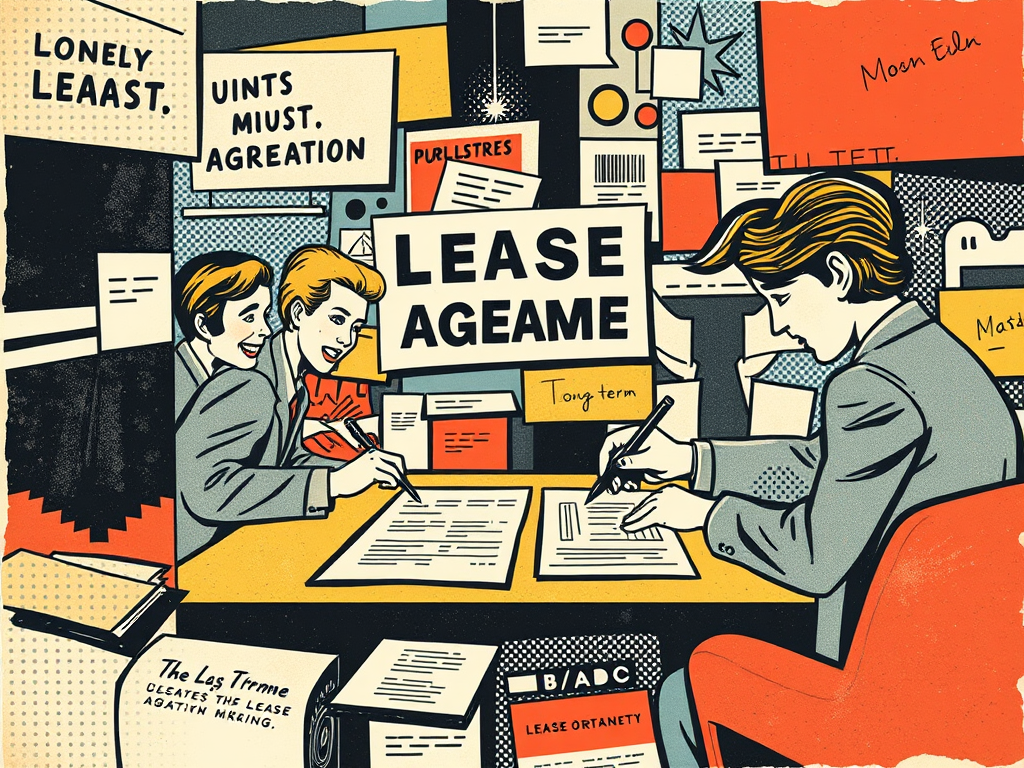
Property Lease Option for Golden Visa: Using 10-Year Leases to Qualify
Reading time: 15 minutes
Table of Contents
- Introduction
- Understanding Golden Visa Programs
- The 10-Year Lease Option: A New Pathway
- Economic Impact of Golden Visa Programs
- Comparative Analysis: Lease vs. Purchase
- Legal and Regulatory Considerations
- Investment Strategies and Market Trends
- Conclusion
- FAQs
Introduction
In the ever-evolving landscape of global mobility and investment, Golden Visa programs have emerged as a pivotal tool for individuals seeking residency in desirable countries. Traditionally, these programs have required substantial property investments, often in the form of real estate purchases. However, a groundbreaking development has captured the attention of investors and policymakers alike: the introduction of a 10-year lease option as a qualifying criterion for Golden Visa applications. This innovative approach is reshaping the way we think about residency-by-investment schemes and opening new doors for a broader range of applicants.
As we delve into this topic, we’ll explore the intricacies of this new lease option, its economic implications, and how it compares to traditional property purchase requirements. Our analysis will draw upon the latest data, expert insights, and market trends to provide a comprehensive understanding of this emerging opportunity in the Golden Visa landscape.
Understanding Golden Visa Programs
Golden Visa programs, also known as residency-by-investment schemes, have become increasingly popular over the past decade. These programs offer a pathway to residency, and in some cases citizenship, in exchange for significant investments in the host country. Traditionally, these investments have primarily focused on real estate purchases, with minimum investment thresholds varying by country.
Key Features of Traditional Golden Visa Programs
- Minimum investment requirements (often €250,000 to €500,000)
- Focus on property ownership
- Residency rights with potential path to citizenship
- Access to Schengen Area (for EU programs)
- Tax benefits in some jurisdictions
The introduction of a 10-year lease option represents a significant shift in this paradigm, potentially broadening the appeal of Golden Visa programs to a wider demographic of investors.
The 10-Year Lease Option: A New Pathway
The innovative 10-year lease option for Golden Visa qualification is gaining traction in several countries, most notably in Greece. This new approach allows applicants to qualify for the Golden Visa program by entering into a long-term lease agreement instead of purchasing property outright.
Key Aspects of the Lease Option
- Minimum lease duration of 10 years
- Typically requires a lump sum payment upfront
- Lower capital requirement compared to property purchase
- Potential for greater flexibility and liquidity
This option is particularly attractive for investors who desire the benefits of a Golden Visa but may not want to commit to full property ownership. It also aligns with broader trends in the sharing economy and the shift towards more flexible living arrangements.
Economic Impact of Golden Visa Programs
The introduction of lease options in Golden Visa programs has significant economic implications, both for host countries and for global investment patterns. To understand these impacts, we need to examine several key economic indicators and trends.
Foreign Direct Investment (FDI) Inflows
Golden Visa programs have traditionally been a significant driver of FDI, particularly in the real estate sector. The lease option may alter this dynamic:
- Potential increase in the number of applicants due to lower entry barriers
- Shift in investment patterns from property ownership to long-term leases
- Possible impact on property market valuations and development trends
Labor Market Dynamics
The influx of Golden Visa holders can have ripple effects on local labor markets:
- Increased demand for high-skilled professionals in related services (legal, financial, real estate)
- Potential boost to the gig economy and flexible work arrangements
- Impact on wages and employment rates in key sectors
Housing Market Trends
The lease option may lead to interesting shifts in housing market dynamics:
- Potential stabilization of rental markets in prime locations
- Shift in property development focus towards long-term rental properties
- Impact on housing affordability for local populations
As we analyze these economic impacts, it’s crucial to remember that economic trends are never linear – they’re a dynamic, interconnected ecosystem. The introduction of lease options in Golden Visa programs is likely to create both challenges and opportunities across various sectors of the economy.
Comparative Analysis: Lease vs. Purchase
To fully appreciate the implications of the 10-year lease option, it’s essential to compare it directly with the traditional property purchase requirement. This comparison will help potential investors make informed decisions based on their unique circumstances and goals.
Financial Considerations
- Initial Capital Outlay: Leasing typically requires less upfront investment
- Return on Investment: Property ownership may offer greater potential for capital appreciation
- Liquidity: Leases generally offer more flexibility and easier exit options
- Tax Implications: Ownership and leasing may have different tax treatments
Long-term Residency and Citizenship Prospects
- Path to Citizenship: Some countries may have different criteria for lease vs. purchase options
- Renewal Requirements: Lease options may require more frequent renewals or reassessments
- Family Considerations: Impact on dependents and inheritance planning
Market Exposure and Risk
- Property Market Volatility: Owners are more exposed to market fluctuations
- Currency Risk: Long-term leases may offer some protection against currency volatility
- Diversification: Leasing may allow for investment in multiple locations or asset classes
This comparative analysis underscores the complexity of the decision-making process for Golden Visa applicants. The choice between leasing and purchasing will depend on individual financial situations, long-term goals, and risk tolerance.
Legal and Regulatory Considerations
The introduction of lease options in Golden Visa programs brings with it a host of legal and regulatory considerations that both applicants and policymakers must navigate carefully.
Regulatory Framework
- Evolving Legislation: Countries are adapting their laws to accommodate lease options
- EU Compliance: For European programs, ensuring alignment with EU regulations
- Anti-Money Laundering (AML) Measures: Enhanced due diligence for lease transactions
Contractual Complexities
- Lease Agreement Terms: Ensuring compliance with Golden Visa requirements
- Dispute Resolution Mechanisms: Establishing clear processes for conflict resolution
- Exit Clauses: Understanding the implications of early termination
Future Policy Directions
- Potential for Further Innovations: Other alternative investment options may emerge
- Harmonization Efforts: Possible moves towards standardization across countries
- Impact of Global Economic Shifts: How changing economic landscapes may influence policy
As these programs evolve, it’s crucial for investors to stay informed about the legal landscape and work closely with experienced professionals to navigate the complexities of Golden Visa applications.
Investment Strategies and Market Trends
The introduction of lease options in Golden Visa programs is not occurring in a vacuum. It’s part of a broader shift in global investment strategies and market trends that savvy investors need to consider.
Emerging Investment Patterns
- Rise of Real Estate Investment Trusts (REITs) focused on long-term leases
- Increased interest in mixed-use developments catering to Golden Visa applicants
- Growing popularity of fractional ownership and other alternative investment models
Global Economic Factors
- Impact of interest rate fluctuations on lease vs. purchase decisions
- Influence of geopolitical events on Golden Visa program popularity
- Shifts in global wealth distribution affecting investor demographics
Technological Disruptions
- Blockchain and smart contracts streamlining lease agreements
- Virtual property tours and remote due diligence becoming more common
- AI-driven analytics helping investors make data-informed decisions
These trends underscore the importance of adopting a forward-looking perspective when considering Golden Visa investments. The interconnection between global economic factors, technological advancements, and policy changes creates a complex but fascinating investment environment.
For those considering property investments beyond Golden Visa programs, options like the opportunity to buy house in greece remain attractive for their potential returns and lifestyle benefits.
Conclusion
The introduction of 10-year lease options for Golden Visa qualification represents a significant evolution in residency-by-investment programs. This innovation opens new doors for a broader range of investors, potentially reshaping the landscape of global mobility and real estate investment.
As we’ve explored, this development brings with it a complex interplay of economic, legal, and strategic considerations. The lower capital requirements and increased flexibility of lease options may attract a new demographic of investors, while also influencing property markets, labor dynamics, and regulatory frameworks in host countries.
However, it’s crucial to approach these opportunities with a nuanced understanding of the risks and responsibilities involved. The choice between leasing and purchasing should be made based on individual circumstances, long-term goals, and a careful analysis of the evolving global economic landscape.
As we look to the future, we can expect further innovations in Golden Visa programs as countries compete to attract global talent and investment. The 10-year lease option is likely just the beginning of a new era of flexibility and creativity in residency-by-investment schemes.
For investors, policymakers, and economic analysts alike, these developments underscore the need for continuous learning, adaptability, and strategic thinking in navigating the complex world of global investment and mobility.
FAQs
1. How does the 10-year lease option differ from traditional Golden Visa property requirements?
The 10-year lease option allows investors to qualify for a Golden Visa by entering into a long-term lease agreement instead of purchasing property outright. This typically requires less upfront capital and offers more flexibility compared to property ownership.
2. Are there any countries currently offering the lease option for Golden Visa programs?
Yes, Greece is one of the pioneering countries offering a lease option for its Golden Visa program. Other countries are considering or in the process of implementing similar options, but it’s essential to check the most current regulations for each specific country.
3. What are the potential risks associated with choosing a lease option over property purchase?
Risks may include less potential for capital appreciation, dependence on the landlord’s compliance with the program requirements, and possible changes in lease terms or program regulations over the 10-year period.
4. How might the introduction of lease options affect local property markets?
Lease options could lead to increased demand for long-term rental properties, potentially stabilizing rental markets in prime locations. It may also shift property development focus towards projects suitable for long-term leases.
5. Can the lease option lead to citizenship in the same way as property ownership?
This depends on the specific country’s regulations. Some countries may have different criteria or timelines for citizenship eligibility based on lease agreements versus property ownership. It’s crucial to review the exact terms and conditions of each program.

Article reviewed by Charlotte Bennett, Senior Corporate Strategist | Mentor to Next-Gen Leaders | Navigating Business Transitions, on March 25, 2025
